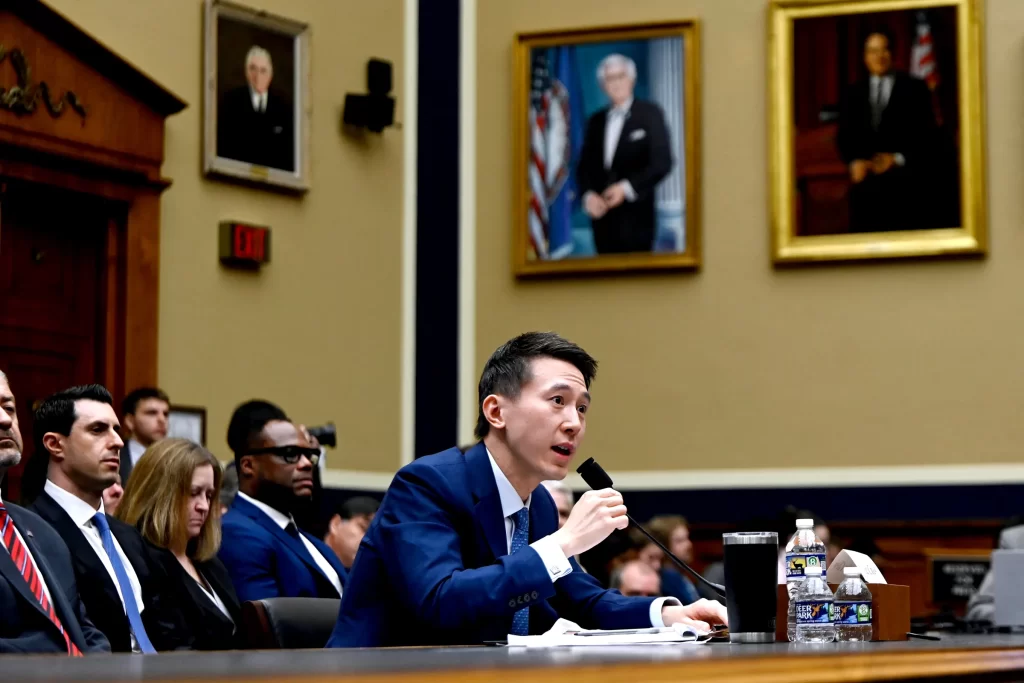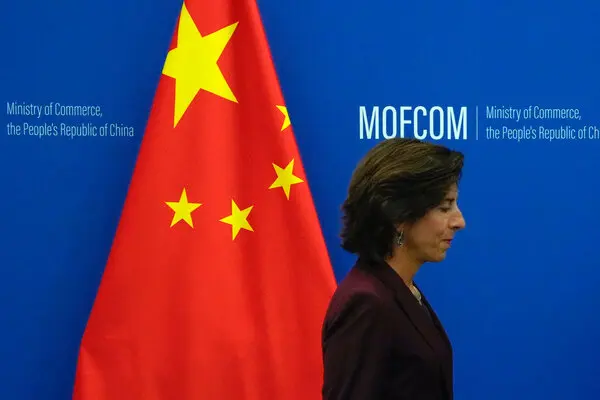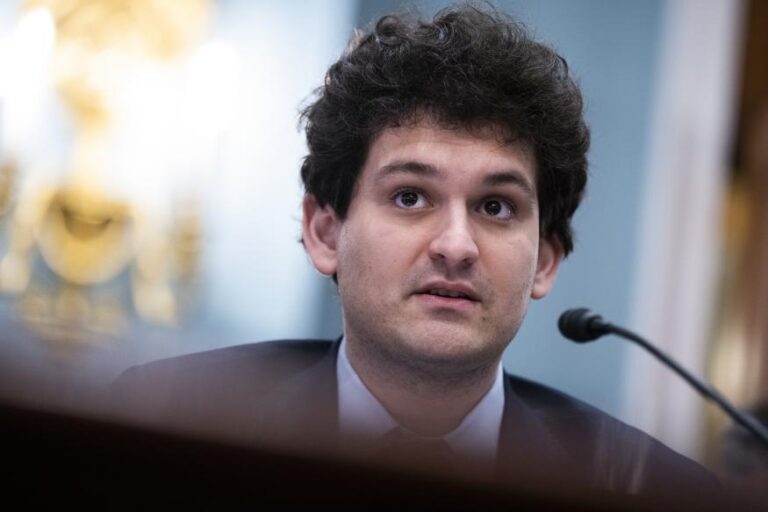Commerce Secretary Gina Raimondo’s visit to China has brought attention to the future of TikTok in the United States, where concerns about the app and its connections to Beijing have intensified greatly this year.
Despite significant pressure on the popular short-form video app owned by the Chinese firm ByteDance, efforts to regulate or prohibit it in Washington have not been successful. Notably, Ms. Raimondo’s visit to China won’t even include discussions about TikTok, underscoring the indecision faced by the Biden administration.

The Biden administration is still trying to figure out a way to handle TikTok, even as US intelligence agencies have caution that it poses a national security risk. Despite being banned on government devices and in over two dozen states, the CEO faced rigorous Congressional questioning in March, and lawmakers have proposed bills to facilitate the banning of tech companies from “foreign adversaries” like China.
However, the White House’s options are limited. Ms. Raimondo stated earlier this year that banning TikTok could lead to losing voters under 35, considering its 150 million users in the U.S.
The possibility of its ban is also uncertain. When the Biden administration reportedly contemplated forcing TikTok’s sale by its Chinese owners in March, China’s Commerce Ministry swiftly opposed the idea, citing potential harm to foreign investment in the U.S.
Consequently, the U.S. and TikTok are grappling with coming up with a strategy for its operations in the U.S. that addresses security concerns. However, discussions have stalled due to the escalating tensions between the two global powers.
TikTok’s pending approval
For years, TikTok has engaged in confidential discussions with the Committee on Foreign Investment in the United States (CFIUS), the administration’s review panel, to address queries about its relationship with ByteDance and the Chinese government, along with data management. It has been a year since TikTok submitted a 90-page plan outlining an independent oversight mechanism for its platform, yet it’s approval remains pending.
TikTok, claiming that it has never shared U.S. user data with China, unveiled aspects of its plan: Project Texas. This initiative involves placing U.S. user data on domestic servers owned by software giant Oracle, granting U.S. government and Oracle unique oversight. A confidential proposal reviewed by Forbes detailed TikTok’s intention to exclude ByteDance leaders from certain “security-related decision making” and to establish a secretive committee.
Discussions with CFIUS are still ongoing, as confirmed by TikTok’s spokesperson Jodi Seth. The Treasury Department, which oversees CFIUS, declined to comment.
U.S. concerns
Intelligence experts have cautioned that TikTok could potentially provide Beijing with access to sensitive U.S. data or manipulate its algorithm to influence content. Concerns have arisen due to Chinese laws that enable the government to secretly demand data from Chinese entities for intelligence purposes. Despite having headquarters in Singapore and Los Angeles, TikTok has been unable to alleviate these concerns.
The White House’s cautious stance
Anupam Chander from Harvard University’s Institute for Rebooting Social Media has expressed concern that targeting TikTok could lead to repercussions against American firms operating in China, such as Apple. Chander cautioned against instigating a “digital trade war” that could negatively impact both sides.
Chander also noted that TikTok has attracted critics from across the political spectrum. However, Democrats might gain more from the platform before the next election. The administration has previously collaborated with TikTok influencers to promote vaccines, a strategy less enthusiastically embraced by Republicans.
The delay explained
Federal judges thwarted President Trump’s attempt to ban TikTok in 2020. The Biden administration seeks to handle the issue in a manner that avoids a similar outcome.
In March, the White House endorsed the RESTRICT Act introduced by Senator Mark Warner, granting more authority to regulate foreign services collecting data from Americans. However, this bill and other legislation that would enable TikTok bans have stalled in Congress, limiting negotiation leverage. Senator Warner emphasized the importance of a comprehensive strategy for addressing national security concerns posed by various apps.








+ There are no comments
Add yours